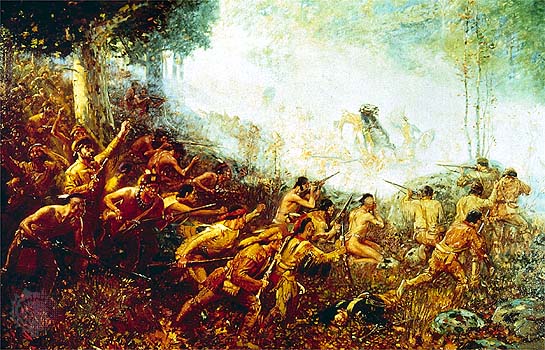 Lieutenant James Lewis
Lieutenant James Lewis
Lieutenant James Lewis is my 8th Great Grand Uncle
 Lieutenant James Lewis
Lieutenant James Lewis

King Philip's warriors attacked the town of Swansea in western
Plymouth Colony in June of 1675. Encouraged by success, they carried the war to neighboring
Plymouth Colony towns. In August of 1675, hostilities expanded to the Connecticut River Valley;
many settlements were burned. In December, Philip's winter quarters in Rhode Island's Great Swamp
were destroyed in a crucial colonial victory. In February of 1676, Native forces swept east;
Boston seemed threatened. War returned to Plymouth Colony, with a raid in Plymouth itself.
Colonists considered abandoning the frontier, but time was on their side. By June of 1676, the
tide of war had turned. Native forces, lacking food, manpower and arms, retreated. King Philip's
death at Mount Hope in August 1676 effectively ended the war.
Not all Native Peoples sided with King Philip. Native soldiers
joining with the colonists helped turned the tide of war. Those Natives who fought alongside the
English or remained neutral were, however, not always trusted by the English. Many Native
neutrals were interned on outlying islands under inhumane conditions.
The war ended in 1676 when Philip was killed by a Wampanoag soldier in Captain Benjamin Church's force.